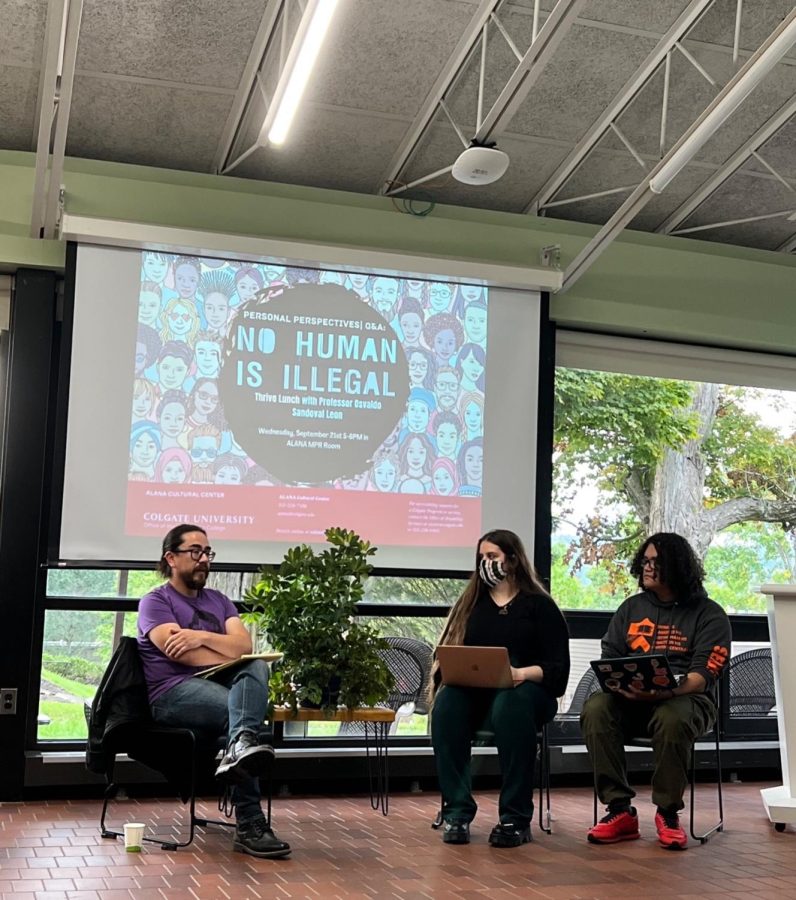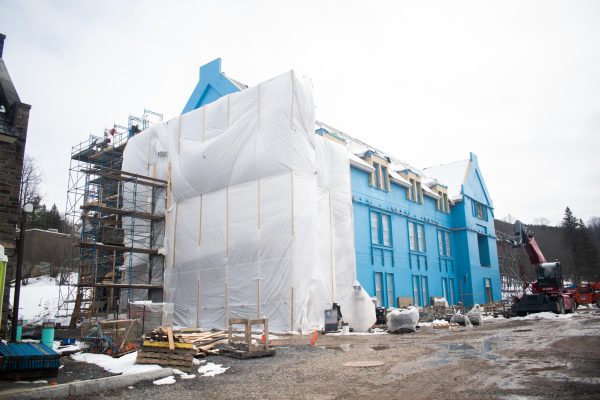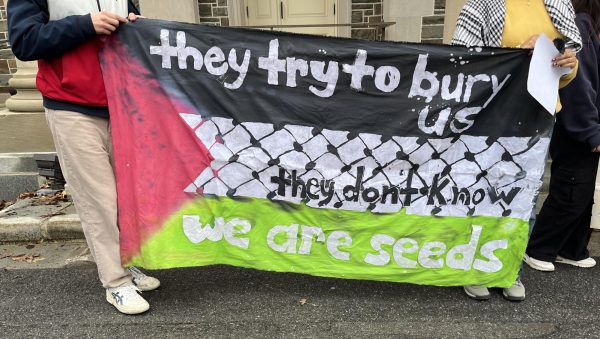ALANA Hosts ‘No Human Being is Illegal’ Q&A
In a conversation hosted by the ALANA Cultural Center titled “No Human Being Is Illegal,” Assistant Professor of Spanish Osvaldo Sandoval-Leon spoke to members of the Colgate community on Sept. 21 about the obstacles that an “illegal” person must endure to access opportunities that would be otherwise easily obtainable.
Sandoval-Leon came to the U.S. as a child when his family left Mexico City and immigrated 22 years ago.
“My parents were forced to migrate to Southern California in Orange County, where we found an important existing Latin American community there and had a cultural shock,” he said. “Personally, I had a really hard time adapting the first year, mainly because I didn’t want to come here — I was forced to come. I was ready to go back to Mexico by then, but little by little, I found my purpose here.”
Sandoval-Leon shared that moving to Michigan to attend Michigan State University presented another challenging transition.
“In Southern California, you can feel a large Latino community there; you don’t feel that everywhere,” Sandoval-Leon said. “When I went to Michigan, going to a different community with many whites brought more awareness of the obstacles.”
Sandoval-Leon doesn’t consider himself an activist but has and will continue to dedicate his time to participating in activist work. He hopes to educate the student body on the disconnect minorities may experience in predominantly white environments.
“I don’t see myself doing that much of an active role, but I try to be an activist when I can,” Sandoval-Leon said. “I dedicated a lot of time in the past [to] doing activist work.”
After discussing his personal experiences, Sandoval-Leon opened the floor up for a Q&A moderated by sophomore Fredy Alvarado-Retana and junior Lara Shqair.
“I was driven to host the ‘No Human Being is Illegal’ conversation with Professor Leon because it is a topic that needs more awareness and discourse around campus,” Shqair said. “It is so crucial to share experiences as children of immigrants so students understand the stories, challenges, mental health barriers and even traumas that so many immigrants face.”
Among the attendees of the Q&A event, Spanish Lecturer Wendy Llorente shared her perspective on the experiences many have grown to endure. Through a different lens, she shared a few thoughts on the topic during the Q&A, highlighting her personal experiences in Hamilton.
Llorente also spoke of how people’s environments have proven to be one defining factor of prejudices minorities face.
“This type of perception could only be seen according to the spaces in which we find ourselves, because if we are in a city where there is diversity perhaps those of us who are of color go unnoticed,” Llorente said. “However, in a space where there is a dominance of the white race, this space will create doubts about our identity.”
Events like these held by ALANA Cultural Center highlight obstacles minority students face and the determination they possess to face such obstacles. ALANA is open and available to all students, faculty and staff. Information on upcoming events held by ALANA can be found on the Colgate University activities calendar.







